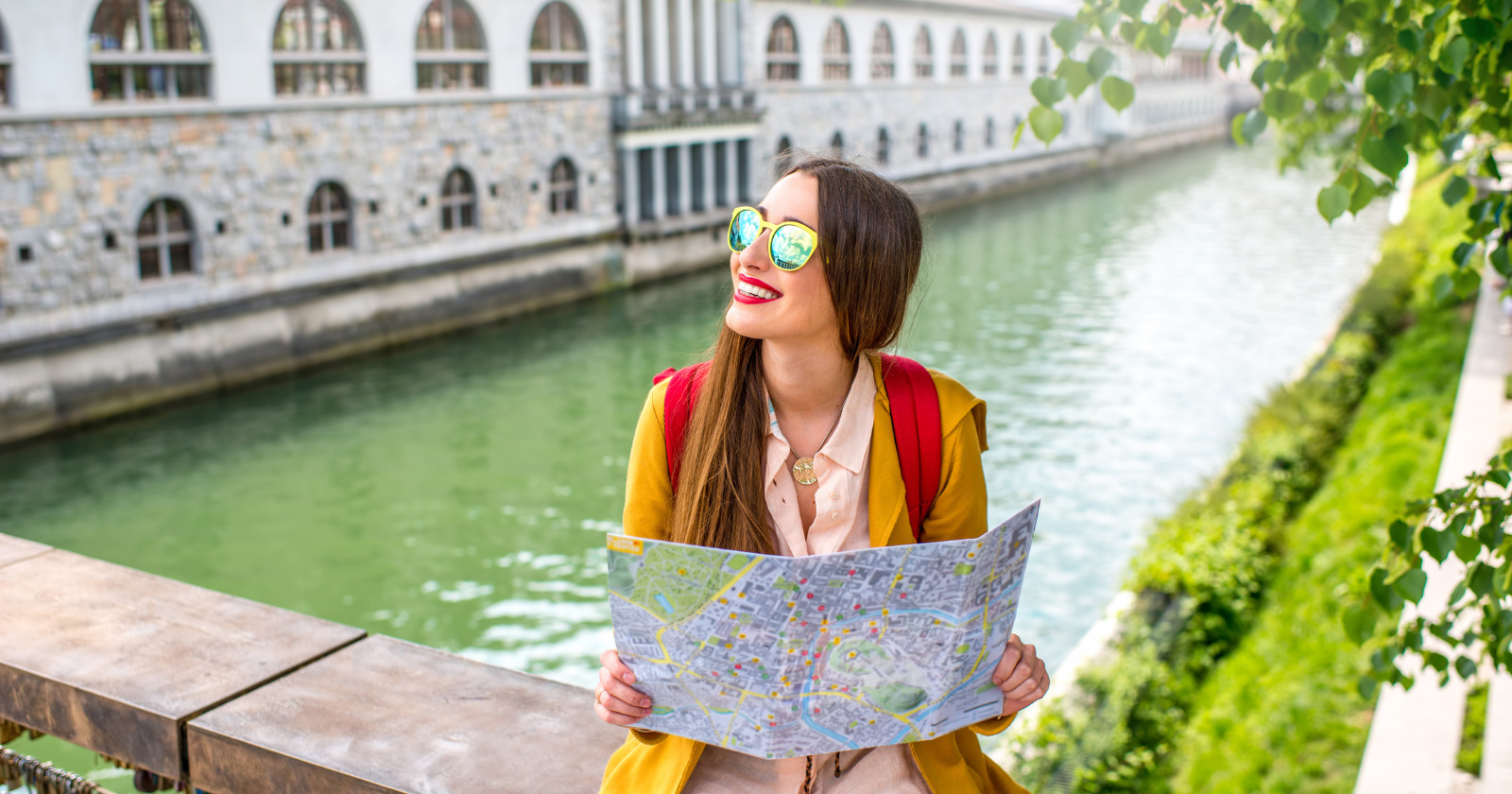Traveling alone is a unique experience that not everyone enjoys.
It takes a certain type of person to relish the solitude and independence that comes with solo travel.
Those who prefer to travel alone often share similar personality traits.
These traits not only enable them to enjoy traveling on their own, but also shape how they interact with the world.
In this article, we’ll explore the 8 personality traits often found in people who love to travel alone.
So, if you’re someone who enjoys solitary adventures, or simply curious about the psychology behind it, read on.
1) Independence
People who love to travel alone often have a high degree of independence.
This is not surprising.
After all, traveling solo requires you to make all the decisions and handle any challenges on your own.
There’s no one else to rely on, no one to bounce ideas off, and no one to share the responsibilities. It’s all on you.
And for some people, that’s exactly what they love about it.
The independence that comes with solo travel doesn’t just apply to the trip itself, but also to the planning and preparation stages.
Solo travelers are usually the ones who enjoy researching destinations, planning routes, and making all the necessary arrangements.
They find satisfaction in knowing that they’re capable of taking care of themselves, not just at home, but anywhere in the world.
And this sense of independence often spills over into other areas of their lives as well. They tend to be self-reliant, confident, and not afraid to step out of their comfort zones.
2) Adaptability
Another common trait among solo travelers is adaptability.
Travel, by its very nature, is unpredictable.
- I pushed away the people who loved me the most. Here’s how I’m finally learning to change - Global English Editing
- 4 zodiac signs who replay arguments in their head long after they’re over - Parent From Heart
- 10 simple habits that make you look a lot younger than your actual age - Global English Editing
No matter how well you plan, things can and often do go wrong. Flights get delayed, weather changes, accommodations aren’t as expected, the list goes on.
When you’re traveling alone, the ability to adapt quickly to these changes is crucial.
There’s no one else to lean on or delegate tasks to. You have to solve problems on your own.
Let me share a personal experience.
I was once traveling solo in Thailand when my pre-booked train got cancelled last minute.
I had no other arrangements and had to quickly figure out an alternative way to reach my next destination. It was stressful, yes, but also a test of my adaptability.
I managed to find a local bus service that was headed the same way and hopped on.
It wasn’t the most comfortable journey, but it got me where I needed to be.
This ability to adapt in challenging circumstances didn’t just help me during my solo travels, it’s a skill that has proved invaluable in many aspects of my life. It’s made me more resilient and better equipped to handle unexpected situations.
3) Curiosity
Curiosity is a defining characteristic of many solo travelers. They have a deep desire to learn about new places, cultures, and experiences.
This curiosity pushes them to go beyond the usual tourist spots and delve into the less explored areas.
They’re the ones you’ll find chatting with locals, trying out traditional cuisine, and immersing themselves in the culture of a place.
Take for instance, the city of Venice. Many tourists stick to the main attractions like St. Mark’s Square and the Grand Canal.
But did you know there’s an entire island in Venice dedicated to artisans who make traditional Venetian masks?
It’s called Giudecca and it’s a paradise for those who are curious enough to explore.
Solo travelers, driven by their curiosity, often uncover these hidden gems that enrich their travel experiences.
This trait doesn’t just make them adventurous travelers, but also lifelong learners.
4) Self-awareness
Traveling alone provides a unique opportunity for introspection and self-discovery.
This is why many solo travelers have a strong sense of self-awareness.
When you’re on your own, you have the time and space to reflect on your thoughts, feelings, and reactions.
You become more aware of your strengths and weaknesses, your likes and dislikes, and your comfort zones.
This heightened self-awareness often leads to personal growth.
Solo travelers tend to be more in tune with their emotions and more understanding of their own needs. It also helps them make decisions that align with their values and beliefs.
So, if you often find yourself seeking solitude for self-reflection or enjoy the process of self-discovery, solo travel might just be your thing.
5) Confidence

Solo travel can be daunting. It requires a certain level of confidence to set off on an adventure all by yourself.
I remember my first solo trip. I was excited but also incredibly nervous. I questioned my decision multiple times and wondered if I was brave enough to go through with it.
As it turns out, I was. Not only did I survive that trip, but I also thrived. I navigated through unfamiliar cities, communicated in a language I barely knew, and handled unexpected situations.
Each challenge I overcame boosted my confidence, and each success made me believe in myself a little more.
Now, I look back on that nervous first-time solo traveler with fondness. Because that experience, as nerve-wracking as it was, helped me become the confident person I am today.
Solo travel doesn’t just require confidence; it also builds it. It’s a journey of self-discovery that helps you realize just how capable you really are.
6) Patience
Traveling alone often requires a good deal of patience.
There are inevitable delays, language barriers, and moments of confusion when you’re navigating a new place by yourself.
Solo travelers are typically patient individuals.
They understand that hiccups are part of the journey and have the ability to stay calm and composed in stressful situations.
For instance, waiting for a delayed flight or dealing with a lost reservation can be frustrating.
But solo travelers take these challenges in stride, using the extra time to immerse themselves in a book, explore their surroundings, or strike up a conversation with a local.
This patience allows them to handle stress better and contributes to a more enjoyable travel experience.
And as with many of these traits, it also translates into their daily lives, helping them navigate personal and professional challenges with grace and resilience.
8) Empathy
At the heart of any solo traveler’s journey is empathy.
When you travel alone, you’re exposed to diverse cultures, perspectives, and lifestyles.
This experience often fosters a deep sense of understanding and respect for others.
You begin to see the world from different viewpoints, which nurtures empathy.
This isn’t just about relating to other people’s experiences. It’s about understanding their emotions, their struggles, their joys.
Empathy is more than a personality trait; it’s a way of connecting with the world.
It’s the ability to step outside of your own perspective and see things from someone else’s point of view.
And in today’s interconnected world, empathy is more important than ever. It fosters tolerance, promotes understanding, and encourages kindness.
And isn’t that what traveling, and life in general, is all about?
Final thoughts: The journey within
Traveling alone is not just about exploring new places, it’s also about exploring oneself.
The personality traits we’ve discussed are not just characteristics of solo travelers, but are also aspects that solo travel helps to nurture and develop.
Consider this quote by well-known traveler and writer, Pico Iyer, “We travel, initially, to lose ourselves; and we travel, next to find ourselves.”
This encapsulates the essence of solo travel. It’s a journey of self-discovery, of finding out who you truly are when stripped of your familiar surroundings and comfort zones.
So if you find yourself resonating with these traits, maybe it’s time to embark on a solo journey. Not just to discover new places, but to discover yourself.









